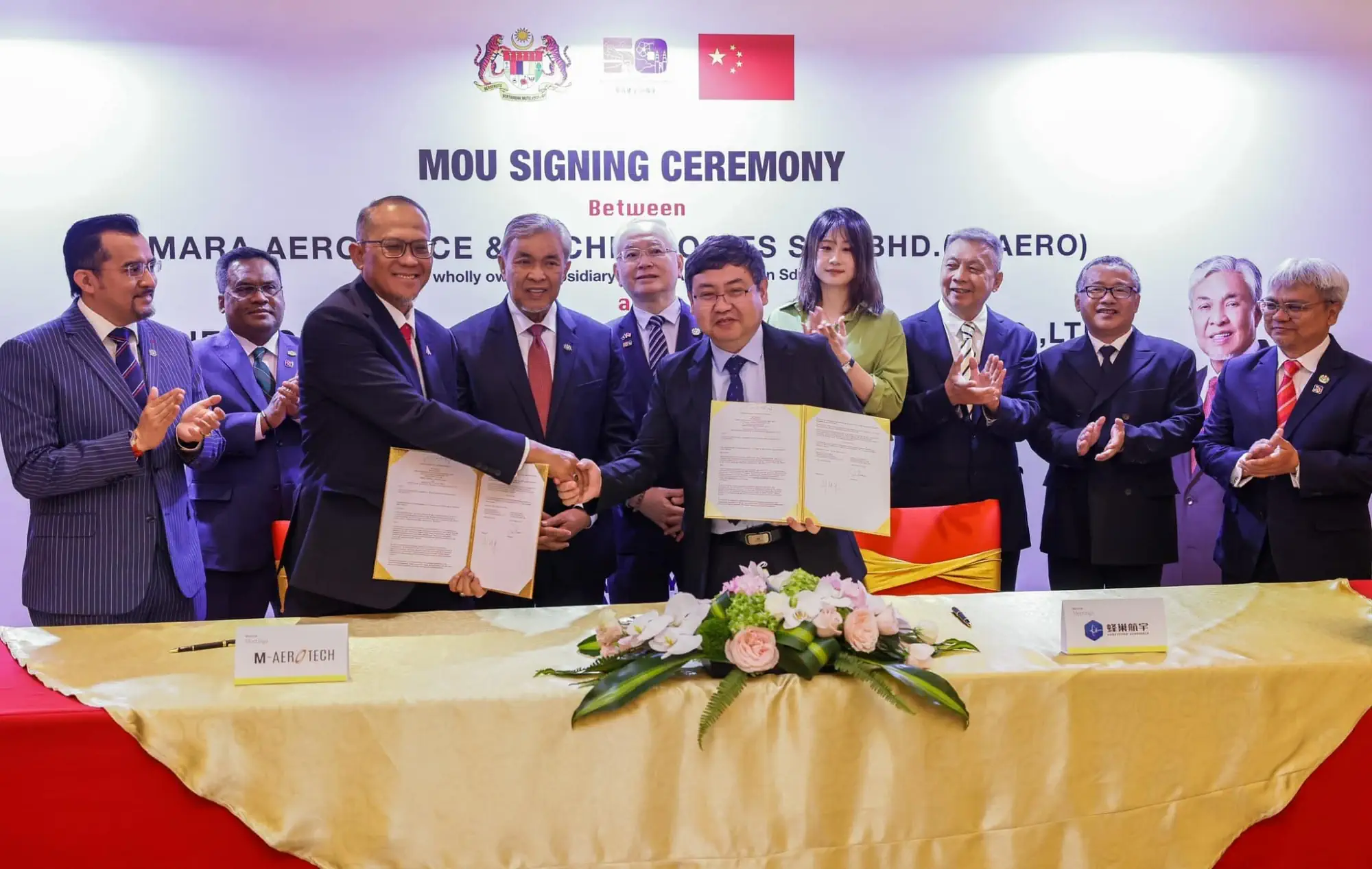Kuala Lumpur, Malaysia September , 2024 – Malaysia is making significant strides in the field of unmanned aerial vehicle (UAV) technology through a groundbreaking collaboration with China. Deputy Prime Minister Datuk Seri Dr. Ahmad Zahid Hamidi announced that this partnership, led by MARA Aerospace & Technologies Sdn Bhd and China’s Honeycomb Aerospace Technologies (Beijing) Co Ltd, aims to share expertise and develop UAV technology locally.
Dr. Zahid highlighted the immense opportunities this collaboration will bring to Malaysia’s UAV industry and the technical and vocational education and training (TVET) sector. A key component of this partnership is the transfer of technology from China, which will greatly benefit Malaysian TVET students, particularly those at the University Kuala Lumpur (UniKL). The knowledge and skills gained through this initiative will equip students to build UAVs, providing them with a competitive edge in the burgeoning UAV technology field.
“This collaboration marks a milestone for Malaysia, with the potential to revolutionize various sectors, including security and agriculture,” said Dr. Zahid. “UAVs, with their advanced capabilities, will play a crucial role in enhancing border security and agricultural efficiency. This technology will change the landscape of how we operate, not just in security but also in agriculture.”
The partnership was formalized with the signing of a Memorandum of Understanding (MoU) between MARA Aerospace & Technologies and Honeycomb Aerospace Technologies. As part of this agreement, Honeycomb Aerospace will invest RM100 million to establish a UAV manufacturing facility in Malaysia, with operations expected to commence in 2025. In the initial phase, Honeycomb Aerospace will set up a UAV assembly facility at the UniKL Malaysian Institute of Aviation Technology campus in Sepang by October. This facility is projected to produce approximately 3,000 UAVs once fully operational.
Dr. Zahid expressed his enthusiasm for the collaboration, emphasizing its potential to drive innovation and growth in Malaysia’s UAV industry. “Agreements must not be mere gimmicks without substantial results and outcomes,” he stated. “I am pleased that this collaboration is set to deliver tangible benefits for our country.”
Discover more from sUAS News
Subscribe to get the latest posts sent to your email.


